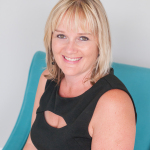This is a partnered guest post.
Autism Spectrum Disorder (ASD) diagnoses have been on the rise in recent years, researchers say, and the incline is dramatic. According to Autism Spectrum Australia, ASDs have impacted 1 in 110 kids in recent years, where previous estimates from as little as 7 years ago totaled 1 in 160 children. As statistics stagger educators, parents and healthcare professionals alike, it becomes increasingly evident that the circle of impact for Autism is much wider than just the individuals or families directly affected. The increasing diagnoses do not, necessarily indicate a higher actual percentage of occurrence, but a greater understanding and acknowledgement of the incidence of ASD.
Early intervention is the key to management of an ASD diagnosis, as is full family involvement. The component that is often overlooked is the critical involvement of the community surrounding those directly impacted by a diagnosis. ASD includes anything from Asperger’s Syndrome to full-blown Autism and everything in between. Every individual is different and every family is impacted differently. However, some compelling statistics drive home the importance of community involvement across the entire spectrum of diagnoses. It is estimated that 80% of marriages in a home with an ASD diagnosis will end in divorce. Many parents face depression, anxiety and anger over the initial diagnosis and after the first shock has worn off. Additional stressors for families include financial, social and academic areas of impact. A child diagnosed with Autism will require additional therapies, some of which can be covered by schools, but most of the time, it falls on individual families to find the right type of help for each unique child. It is up to each family to determine their needs and pursue help. Parents often find themselves feeling isolated and overwhelmed by the balancing act of maintaining life and the multi-faceted challenges of parenting an ASD child.
Parents need to seek the help of support groups, counselors and peers who are willing to walk the road of an ASD diagnosis with them. What few people seem to really grasp is that the diagnosis is often as difficult for parents as it is for the child facing the disorder. Fortunately, the growing awareness and number of diagnoses means that today’s ASD families have a much greater shot at success than those who’ve gone before and paved the way. From the family health insurance companies that offer coverage and advocacy for ASD-related treatments and therapies to a growing awareness of the full impact of this disorder, the world around these families today is much more hospitable. An ever-increasing presence of not-for-profit organizations designed to support and prepare families to face the unique challenges of ASD also stand in the gap for these families. Parents of current-day ASD children are still largely responsible for seeking out their own help, but today, much more is available to these families.
As members of our local and global communities, it is imperative that we begin to familiarize ourselves with the needs of families facing ASD. If it takes a village to raise a child, then it takes the effort of that same community to surround and support families facing ASD. It is no longer an individual struggle. Families impacted cannot remain silent, but must be enabled to lean on the community surrounding them for support and backup on the long road ahead of them.
Despite the dramatic increase in the presence of Autism support today, there is still a great need. The disorder has made its debut onto the scene of our social sphere, and needs to be met with continual support and increasing means to meet the needs. Community is the greatest possible ally for families encountering a life of juggling and balancing the priorities of all aspects of life and the unique responsibility of ASD.









I agree in educating ourselves, and for a medley of things (not just autism) so we can help children.
as the mother of an ASD child I would like to add that in the US the official number is 1 in 88 children age 12 and up have a form of autism when the numbers were announced last year. But those numbers did not take into account children younger than 12 and the numbers were already 2 years old when they were released. Some areas of the US have rates as high as 1 in 43 children. In addition the AAP in the journal Pediatrics just announced at the end of 2012 that many of these children have GI issues that if treated improve the child so much so that they often lose many of their autistic traits, or they greatly improve. The House of Reps just had a big autism hearing where they heard from many people as to how to help our children. And the AAP in the same article finally label autism an epidemic. People, all people, need to take this more seriously. This will, and does, have a huge impact financially for our country. It also will impact the work force and our military as ASD children will not be able to serve in our armed forces if they do not improve significantly. The impact is enormous and needs to be addressed now, before it is too late.
I think education is best. At this point I’m not sure if there is a cure so just doing what we can with the knlowedge we can gain is best
I make sure to know all that I need to know.. It’s so scary that we can really only prevent so much.
Thank you for sharing this, I am always eager to learn more about Autism.
I think it’s so important for everyone to be more educated about Autism. Thanks for sharing.
I agree that early intervention and education is essential. I would love to see more research done to discover actual causes and hopefully find a cure!
we have a niece who is autistic and the struggles her mom goes through is so sad. Hugs to everyone Hi hope they find resources and a cure one day
I’ve worked with people with disabilities for over 20 years, and the progress that’s been made with people on the spectrum is amazing, mainly because of education and early diagnosis.